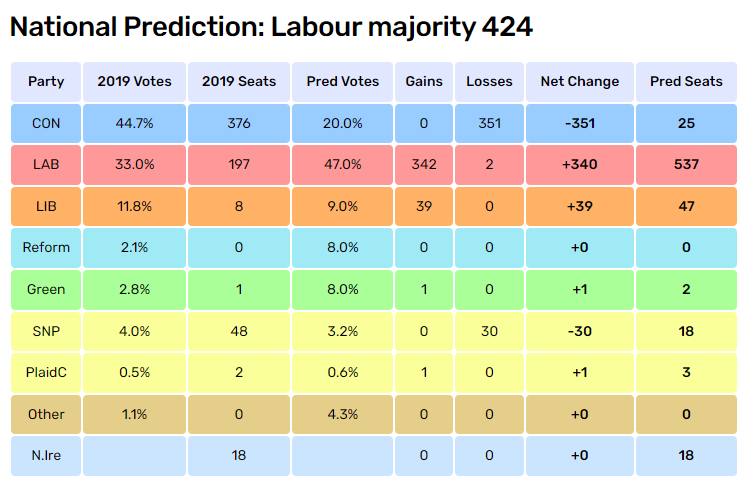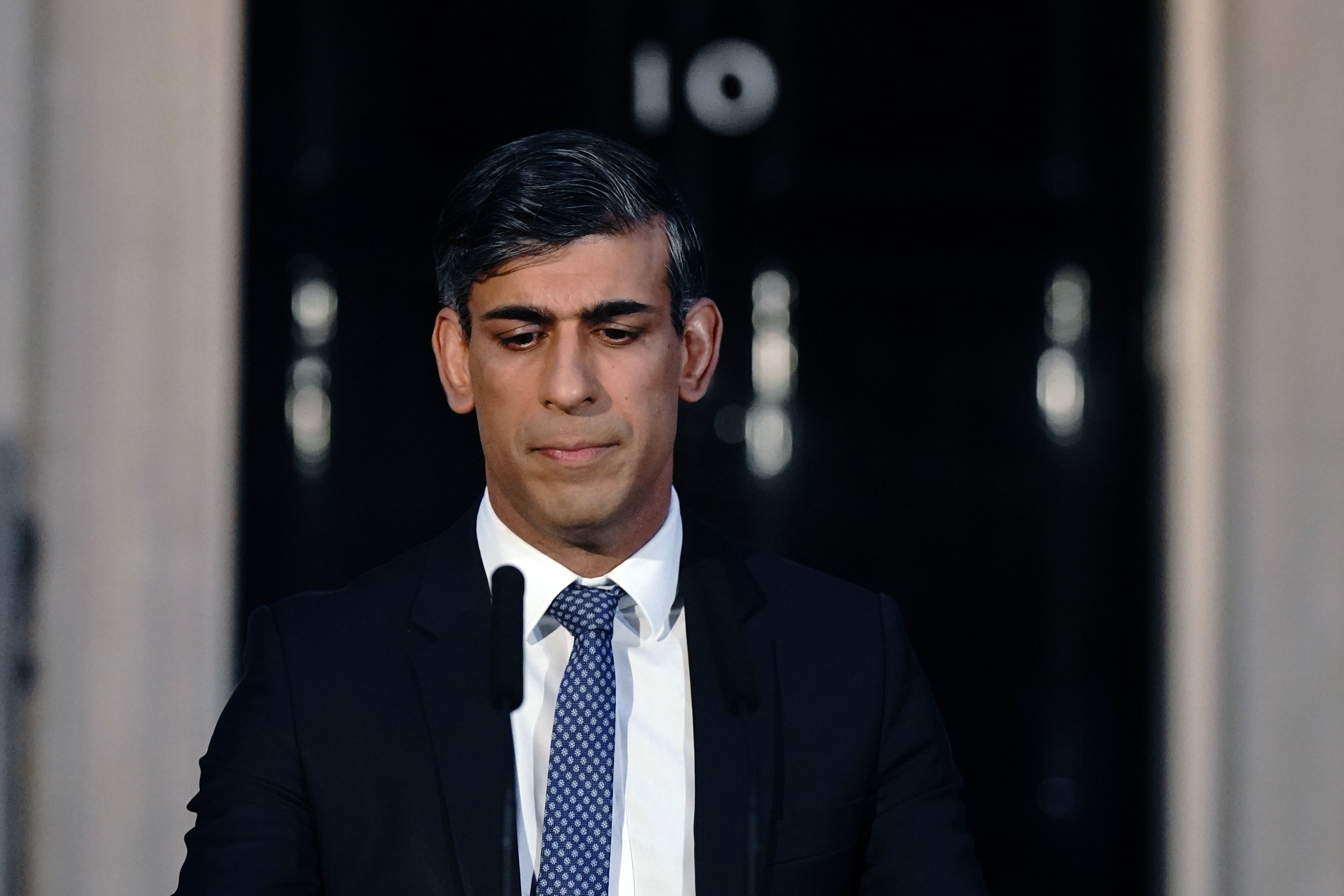Tory support hits lowest level for more than 40 years, damning poll shows
The bombshell survey spells electoral oblivion for Mr Sunak’s party, leaving the Conservatives 27 points behind Sir Keir Starmer’s Labour
Support for the Conservative Party has plunged to the lowest level since 1978 with just a fifth of British voters now backing Rishi Sunak’s party, according to a new poll.
The bombshell survey, showing the Conservatives as 27 points behind Sir Keir Starmer’s Labour Party, would spell electoral oblivion for Mr Sunak’s party if replicated at a general election.
The Ipsos poll, published on Monday, shows Mr Sunak could hold on to as few as 25 seats – 351 fewer than Boris Johnson won in 2019 – in what would be a historic defeat.
It also predicts Sir Keir could secure as many as 537 seats – 340 more than Jeremy Corbyn managed at the last election and equating to a landslide which would eclipse Sir Tony Blair’s 1997 win.

The survey showed support for the Tories at just 20 per cent, the lowest since 1978 when Ipsos started tracking the poll. Ipsos is a multinational market research firm and the poll is the latest in its monthly independent Political Monitor.
It comes just weeks after a Tory bust-up over a series of secretive polls trying to discredit Mr Sunak, including one poll that warned of a Tory wipeout unless he was removed as leader.
In the latest survey, Labour’s support has dropped to 47 per cent from the 49 per cent it had in January.
Meanwhile, the Liberal Democrats were backed by 9 per cent of the electorate, while support for both the Green Party and Reform UK was at 8 per cent – double what it was in January.
Ipsos’s previous lowest score for the Conservatives was 22 per cent, recorded by John Major in December 1994 and May 1995, only a few years before Sir Tony’s election win.
The slump in Conservative support follows a series of bad headlines for Mr Sunak at the start of 2024, with confirmation that the UK had entered a recession at the end of last year, two large by-election defeats in Wellingborough and Kingswood and an Islamophobia row over comments by now-suspended Tory MP Lee Anderson.
There is also public frustration at near-record NHS waiting lists and record high net migration, with Mr Sunak failing on four of his five key pledges to voters including to “stop the boats” and grow the economy.

Ipsos head of political research Gideon Skinner said: “The historical comparisons continue to look ominous for Rishi Sunak and the Conservatives. The Ipsos Political Monitor series started in the late 70s and has never recorded a Conservative vote share this low.”
He added that individual support for the PM is also heading downwards, with Mr Sunak’s approval rating hitting -54, a record low.
“Combined with Labour taking leads on issues of economic credibility to go with their traditional strengths in public services, this means the Conservatives face big challenges across a number of fronts if they are to turn the situation around,” Mr Skinner said.
In a further worrying sign for the Conservatives, Labour is now seen as having a lead on which party would best manage the economy, compared with October when the parties were neck and neck.
The public also believe Labour’s Rachel Reeves would make the best chancellor, with just a fifth satisfied with the job Jeremy Hunt is doing.
It will pile further pressure on the government to come up with an offering in Wednesday’s Budget, with right-wing Tories clamouring for tax cuts while others want Mr Hunt to ensure better funding for public services.
The poll was based on a survey of 1,000 British adults between February 21 and 28.
Join our commenting forum
Join thought-provoking conversations, follow other Independent readers and see their replies
Comments
Bookmark popover
Removed from bookmarks